Paxton investigates Dallas for alleged sanctuary city policies
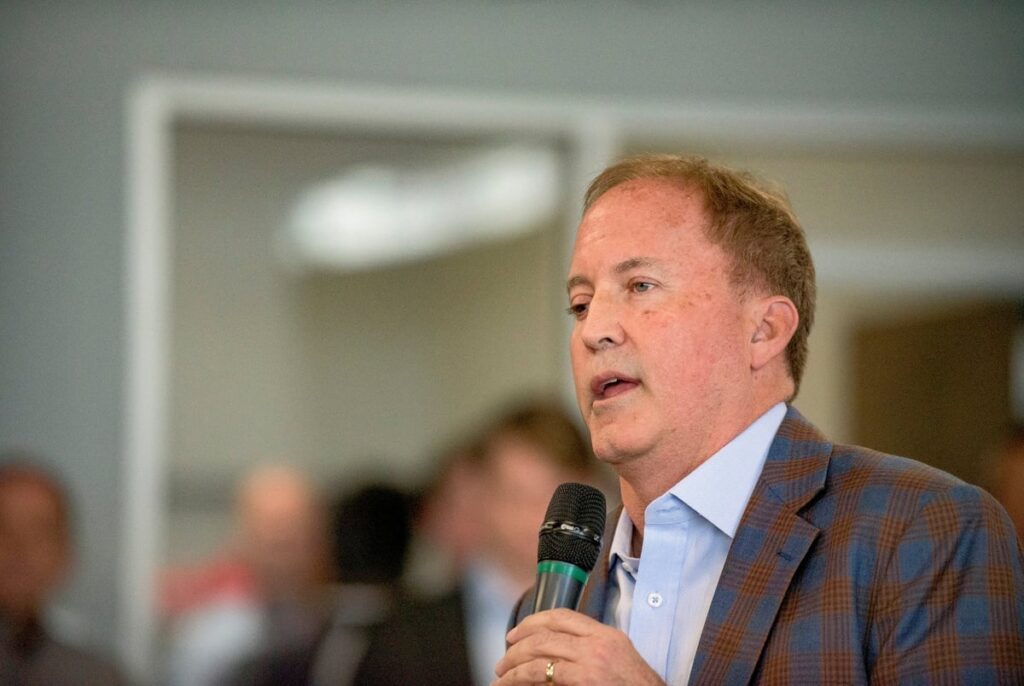
Attorney General Ken Paxton said a recent statement by Dallas’ interim police chief raised concerns that the city might be violating a state law against so-called sanctuary city policies.
Texas AG announces probe into Dallas over its sanctuary polices: ‘The law is not optional’

Texas Attorney General Ken Paxton is launching a probe into the city of Dallas over the region’s sanctuary city policies that protect illegal immigrants. On Thursday, Paxton announced the investigation, as well as a formal request for city and Dallas Police Department records concerning the police department’s refusal to comply with state and federal immigration laws. “The law is not optional. Local governments do not have the authority to disregard state and federal immigration laws,” Paxton said in a statement. “The people of Texas expect law enforcement agencies to uphold public safety, not to implement sanctuary policies that put our communities at risk.” CALIF POLITICIAN PATCHES GAPING BORDER HOLE WITH 400 FEET OF RAZOR WIRE USING HER OWN CASH “My office will take all necessary legal actions to ensure compliance with state law and hold accountable any local entity that defies its legal obligations,” he added. Paxton’s office has requested all policies, training materials and communications related to Dallas’ enforcement or non-enforcement of immigration laws, including any records reflecting decisions to decline cooperation with federal immigration authorities. He cited Dallas Interim Police Chief Michael Igo, who said that his agency “is not assisting any federal agency on detaining people that are either documented or undocumented in the City of Dallas.” HOMELAND SECURITY, TEXAS AGENTS ARREST AROUND 90 ILLEGAL IMMIGRANTS Paxton said the chief’s remarks “raise serious concerns” that the city and police department are possibly violating Texas law, which prohibits local entities from adopting sanctuary city policies that limit immigration enforcement. In a statement to Fox News Digital, the city of Dallas said: “We are reviewing the letter received from the Texas Attorney General’s Office and will respond at the appropriate time.” Fox News Digital has reached out to the Dallas Police Department. Texas has taken a hard stance against illegal immigration, particularly during the Biden administration. The state deployed authorities to its border with Mexico and took on a campaign of bussing migrants to Democratic-run cities to bring attention to the flow of illegal immigrants into the U.S.
The Hitchhiker’s Guide to where we stand with a potential government shutdown
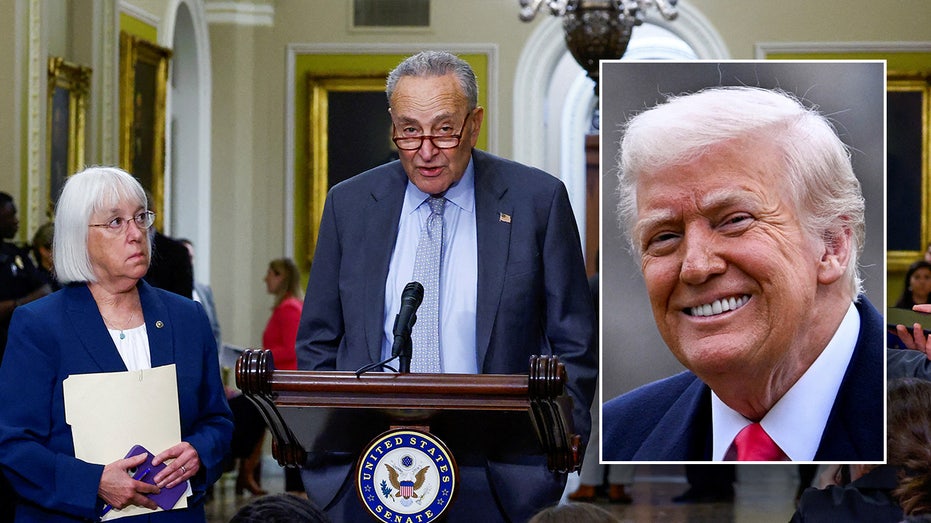
Things are getting dicey as we hurtle toward a potential government shutdown tomorrow night as time slips off the clock. But Democrats are REALLY torn – as badly as I’ve ever seen any party torn – about what approach to take. On the one hand, they don’t want to shut down the government. They fear that will imperil already skittish federal workers. And it could lead to additional cuts from Elon Musk and DOGE if federal workers aren’t on the job. THE HITCHHIKER’S GUIDE TO WHERE WE STAND TO AVOID A GOVERNMENT SHUTDOWN On the other hand, they want to be seen as fighting for their base and rallying against President Donald Trump and Musk. But it is often the darkest before the dawn. And we’re getting close to the stage where lawmakers realize they must make a decision: Either go to the mat, or try to salvage something before the 11:59:59 p.m. ET deadline. There are rattlings now that Democrats may ask for votes on a universe of amendments – none of which would pass. But at least Democrats could try to save face – and tell their loyalists that they had fought for their values and tried to stand up to the president and Musk. They could also make the case that a shutdown is worse than keeping the government open. DEM DIVISIONS ERUPT OVER TRUMP SPENDING BILL TO AVOID SHUTDOWN, DESPITE SCHUMER’S CLAIM FOR UNITY Fox is told senators would be interested in votes on the following subjects: While Sen. John Fetterman, D-Pa., appears to be the only Democrat willing to vote for the GOP interim spending bill, it’s POSSIBLE that a vote on a set of amendments COULD unlock a few Democratic votes to break a filibuster on the bill. A test vote would likely come tomorrow morning. That’s why they need to potentially broker a deal today. Multiple Senate Democrats were utterly silent as they left a lengthy Senate Democratic Caucus. None of the senators approached by Fox were willing to talk – even though some are quite loquacious under other circumstances. That includes Sens. Richard Blumenthal, D-Conn., Elizabeth Warren, D-Mass., Chris Van Hollen, D-Md., Chris Coons, D-Del., Richard Blumenthal, D-Conn., Ed Markey, D-Mass., and Tammy Baldwin, D-Wisc. In fact, Fox even asked several of the Democrats whether they have been told not to say anything. Several of them replied, “No comment.” Quiet on Capitol Hill usually means something is up, and that lawmakers are trying to broker a deal, and it could be very fragile. It also means that lawmakers are completely beside themselves and fuming inside. TRUMP CRAFTS PLAN TO CUT SPENDING WITHOUT CONGRESS AFTER SHUTDOWN IS AVERTED Don’t underestimate the latter as a potential avenue out of this political cul-de-sac. Former House Speaker John Boehner, R-Ohio, used to say that “nothing good ever happens when the House has been in session for more than three consecutive weeks.” Members grow angry. Antsy. Tempers are short. As Senate Majority Leader John Thune, R-S.D., noted this morning, the Senate has been in session for 10 consecutive weeks. That includes three all-night sessions and weekend sessions. This period is the longest stretch of consecutive weeks for Senate activity in 15 years. The Senate is scheduled to be out of session next week for the first time this year. If the government shuts down, that recess could be trashed. Senators have barely seen their family members and loved ones all year long. It’s been a frenetic pace. That’s why the decision about funding the government and getting people out of the Capitol could be made by the most powerful people in Washington: the Senate spouses. This is far from settled. But they are already getting late in the game if they are to avoid a shutdown tomorrow night.
Maine judges’ mass recusal in trans sports case raises unanswered questions, legal expert says

Federal judges in Maine said they were compelled by their code of ethics to recuse themselves from a case brought forth by Maine GOP state Rep. Laurel Libby. Libby, R-Bangor, is challenging her censure in the state legislature, which was issued in response to her opposition to transgender athletes competing in women’s high school sports. Judges in the U.S. District Court for the District of Maine, the state’s sole federal court district, announced Wednesday that they would all be recusing themselves from Libby’s case, forcing it to be moved to a court in Rhode Island. While the judges did not initially state any reasons explaining their mass recusal, Chief Judge Lance Walker said in a statement Wednesday evening that it was the result of a potential conflict of interest. “The Judges of the District of Maine independently concluded that they are compelled by the Code of Conduct for United States Judges to recuse themselves because an employee of the District of Maine is involved in or directly impacted by the controversy underlying this litigation,” Walker said. “The case will remain in the District of Maine but has been specially assigned to judges in the District of Rhode Island.” TRUMP ADMIN CUTS FUNDING TO MAINE UNIVERSITIES AS STATE DEFIES ORDER TO BAN TRANS ATHLETES FROM WOMEN’S SPORTS While Walker’s explanation shed some light on the reasoning behind the mass recusal, it failed to specify the exact nature of the conflict of interest. A Fox News Digital analysis of public records found that the transgender high school athlete at the center of Libby’s censure lawsuit – filed after she posted a photo of the athlete competing before transitioning – shares a last name with someone working in the U.S. District Court system for the District of Maine. “It seems like there was a reasonable explanation for those judges to recuse, that they all did have a close relationship with someone related to the athlete,” said Carrie Campbell Severino, president of the Judicial Crisis Network. Severino said, when asked about the possible familial link: “My concern now is – how has this next judge been chosen? Because there are lots of questions about whether this judge is actually able to be impartial in the case.” RILEY GAINES, LAUREL LIBBY RIP GAVIN NEWSOM, HAKEEM JEFFRIES OVER EXCUSES FOR TRANS ATHLETES IN WOMEN’S SPORTS Due to the judges’ recusal, Biden-appointed Judge Melissa DuBose of the District of Rhode Island will now oversee the case. During DuBose’s confirmation hearing in March 2024, Sen. John Kennedy, R-La., questioned DuBose over comments she made to a journalist about going through a “Marxist phase” at a certain point in her life. “Senator, I have never been a Marxist and I am not [currently] a Marxist,” DuBose said. In 2021, DuBose signed a letter alongside a slew of other Rhode Island judges, ensuring the LGBTQ community, racial minorities “and all under-represented communities” that “Rhode Island’s courts are their courts.” The letter followed a rally of thousands on the state House steps protesting police brutality. SCHOOL DISTRICT BANS TRANS ATHLETES FROM GIRLS’ SPORTS AS STATE DEFIES TRUMP, SPARKING LOUD PRO-TRANS CHANTS Severino said it was “hard to imagine” that DuBose would be able to provide a fair trial in Libby’s case, which centers on highly contentious LGBTQ issues. “It’s not clear to me how it was decided it was going to go to Rhode Island, as opposed to another jurisdiction nearby. There are other adjacent states the case could theoretically go to,” Severino pointed out. “Now that it has been moved, there are further concerns about the ability of this judge to be impartial.” Libby declined to comment for this article, citing ongoing litigation. Maine House Speaker Ryan Fecteau, D-Biddeford, who is a defendant in Libby’s case, also cited the same reason for not wanting to comment. Maine House Clerk Robert Hunt, another defendant, did not respond to Fox News Digital’s request for comment.
Dem AGs sue over Trump administration’s Department of Education layoffs
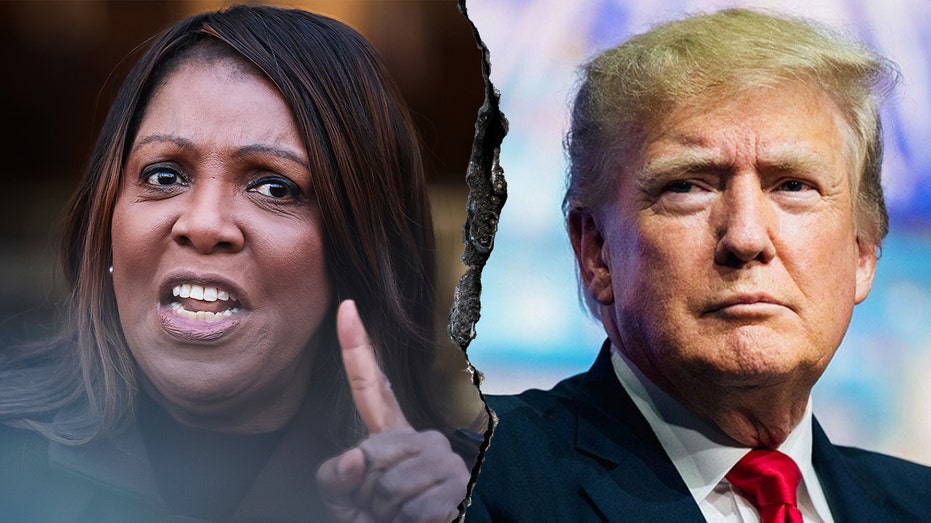
The attorneys general of 20 Democratic states, led by New York Attorney General Letitia James, slapped the Trump administration with a lawsuit after the Department of Education (DoED) cut nearly half its workforce this week. The lawsuit, filed on Thursday against Secretary Linda McMahon, the Department of Education, and President Donald Trump, claims that the president does not have authority to dismantle the department and that cuts will cause “immense damage” to their states’ educational systems. The DoEd, which Trump has said he would close “immediately,” announced on Tuesday that it would be shrinking its workforce from around 4,133 to around 2,183 employees. Remaining workers impacted by the reductions will be placed on administrative leave beginning March 21. Madi Biedermann, Deputy Assistant Secretary for Communications, U.S. Department of Education, told Fox News Digital in response to the lawsuit that the reductions were “strategic, internal-facing cuts that will not directly impact students and families.” OHIO COLLEGE ‘ILLEGALLY FORCING STUDENTS’ TO SHARE BATHROOMS WITH OPPOSITE SEX: WATCHDOG SECRETARY OF EDUCATION LINDA MCMAHON PRAISES DEPARTMENT FOR TAKING STEPS TO ELIMINATE ‘BUREAUCRATIC BLOAT’ “President Trump was elected with a mandate from the American public to return education authority to the states,” Biedermann told Fox News Digital. “The Department of Education’s reduction in force (RIF) was implemented carefully and in compliance with all applicable regulations and laws. They are strategic, internal-facing cuts that will not directly impact students and families.” Biedermann also said that no employees working on the FAFSA, student loan servicing, Elementary and Secondary Education Act (ESEA) Title funds, the Office of Special Education Programs, or the Rehabilitation Services Administration who serve children with disabilities were impacted. “The Office for Civil Rights will continue to investigate complaints and vigorously enforce federal civil rights laws,” Biedermann said. “This administration may claim to be stopping waste and fraud, but it is clear that their only mission is to take away the necessary services, resources, and funding that students and their families need,” James, New York’s attorney general and a vocal Trump critic, said in a statement on Thursday. “This outrageous effort to leave students behind and deprive them of a quality education is reckless and illegal.” The lawsuit comes just days after the Trump administration formally stripped James of her security clearances. The other blue states suing the administration include Arizona, California, Colorado, Connecticut, Delaware, Hawaii, Illinois, Maine, Maryland, Massachusetts, Michigan, Minnesota, Nevada, New Jersey, Oregon, Rhode Island, Washington, Wisconsin, Vermont and the District of Columbia. The suit points to former President Ronald Reagan’s attempts to close the department, claiming that the efforts reflect “the uncontroversial understanding that only Congress may abolish an agency it created.” McMahon, during her confirmation hearing in February, acknowledged that the administration would need Congressional approval in order to eliminate the department. “The federal government does not control education, the states do, local school boards do. This is about opportunity,” McMahon told Fox News’ Laura Ingraham amid the workforce cuts. “That is why so many people are so mad about it, because they’re just taking opportunity away from kids who don’t have it.” Fox News’ Emma Colton contributed to this report.
Americans held captive by South American dictator symptom of deeper threat, says former Green Beret
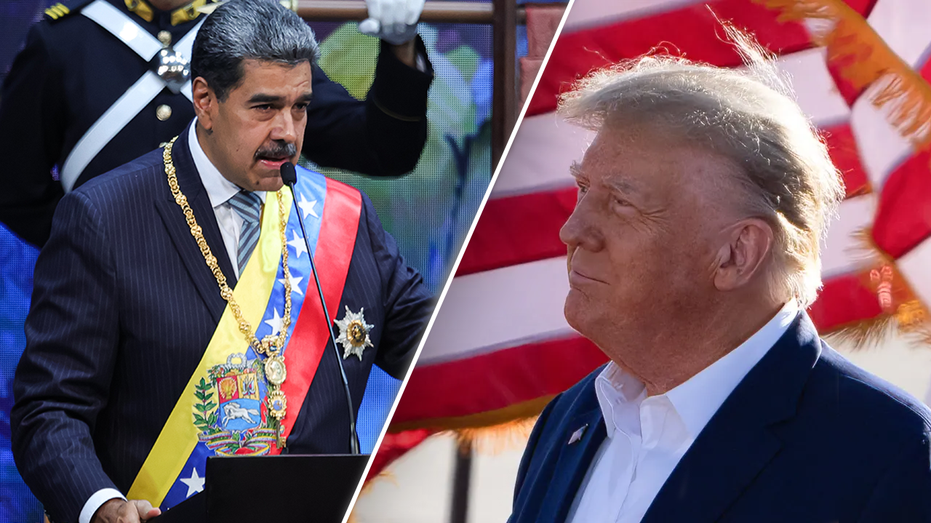
After the State Department determined nine Americans are being held hostage by Venezuelan socialist dictator Nicolás Maduro, Jordan Goudreau, a former U.S. Army Green Beret and Venezuela expert, is sounding the alarm about a deeper national security problem at play. Goudreau, who helped lead an unsuccessful paramilitary attempt to overthrow the Maduro regime in 2020, told Fox News Digital it is “very reasonable to believe” that foreign actors, including China, have a presence in Venezuela and could be using the South American dictator to conduct “asymmetric warfare” on the United States. This comes after a spokesperson for the State Department revealed last week that Secretary of State Marco Rubio determined that Maduro’s government is holding nine Americans hostage under “questionable circumstances and without respect for their rights,” according to Reuters. The State Department spokesperson said, “All Americans unjustly detained by the Maduro regime must be released immediately” and noted that the U.S. “continues our efforts to secure the release of any remaining Americans unjustly detained by the regime in Venezuela.” ‘WEAPONIZED MIGRATION’: US FACES DEADLY CONSEQUENCES WITH MADURO IN POWER, VENEZUELAN OPPOSITION WARNS According to Goudreau, the Venezuelan government has a pattern of cooperating with U.S. enemies such as Russia and China, which represents a “clear and present danger” to U.S. national security. Goudreau pointed to the Monroe Doctrine, an 1823 proclamation that said America would not allow foreign enemies in the Western Hemisphere as “one of the reasons Venezuela is significant.” CLICK HERE FOR MORE IMMIGRATION COVERAGE He said there is evidence China is supplying Venezuela with some of the chemical materials needed to manufacture fentanyl, which is then distributed throughout the U.S. by Maduro agents, including the Venezuelan criminal group Tren de Aragua (TdA). TdA is an international gang that has unleashed a wave of terror across U.S. cities that has included taking over entire apartment complexes in Aurora, Colorado. The group was recently designated a foreign terrorist organization by the Department of State. Through these networks, Goudreau said, Maduro can “flood the United States with fentanyl.” TRUMP ADMIN PROMISES TO BE ‘RUTHLESSLY AGGRESSIVE’ IN RESPONSE TO SUSPECTED CARTEL KILLING OF US CITIZEN “Because he has individuals who have access and placement [in the United States], whether it’s Tren de Aragua or whoever, he obviously has agents in the United States who are moving product, moving fentanyl and things of that nature, killing Americans. So, this is the obvious threat we’ve seen this over the last four years,” Goudreau explained. He acknowledged recent efforts to shut the border and crack down on illegal immigration have helped, but he said the threat still exists. Despite this, Goudreau cautioned against any sudden moves by the Trump administration to help the Venezuelan resistance movement against Maduro. “Everybody wants to create a kind of clarity, but this is an incredibly complex situation. It’s not going to get fixed overnight,” he said.
Universities that enable protest encampments would lose funding under proposed law
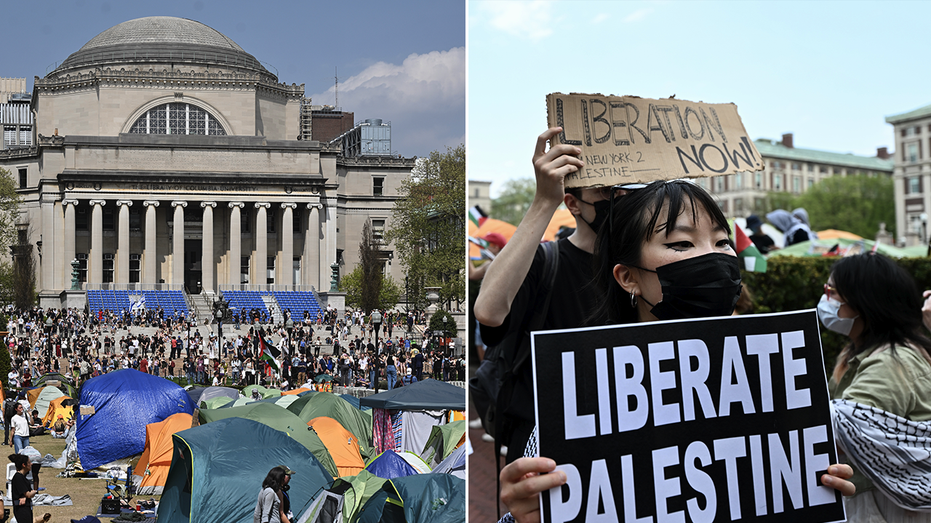
New legislation aims to penalize college campuses that enable protest encampments, which were a widespread phenomenon last year as a means of protesting the war between Israel and Hamas. The “No Tax Dollars for Colleges Encampments Act,” sponsored by Sen. Jim Banks, R-Ind., would stop federal taxpayer dollars from going to schools that do not properly share policies about how they handle cases of “civil disturbance” by changing the Higher Education Act of 1965. “Many of our ‘elite’ academic institutions have become hotbeds for antisemitism and pro-terror ideologies,” Banks said in a statement. SUPPORTERS OF DETAINED COLUMBIA STUDENT ARRESTED AFTER CLASH WITH NYPD AS TRUMP ADMIN SEEKS HIS DEPORTATION “My bill holds these universities accountable and prevents American tax dollars from being wasted on institutions that act as safe havens for anti-American harassment and violence,” the senator added. Banks’ bill is just one aspect of a broader crackdown on campuses, public or private, for how it handled protests that in many instances targeted Jewish students or made them feel unsafe on campuses. The Trump White House scrapped $400 million in federal funding that went toward Columbia University, which gained nationwide attention for its encampment that proponents said was in support of Gaza. A key figure in those protests, Mahmoud Khalil, is currently being held by Immigration and Customs Enforcement, as he was in the country under a student visa. President Donald Trump said in a post to Truth Social earlier this week it is “the first arrest of many to come.” “Following my previously signed Executive Orders, ICE proudly apprehended and detained Mahmoud Khalil, a Radical Foreign Pro-Hamas Student on the campus of Columbia University,” Trump stated in the post about the student, which has since led to protests. WHO IS MAHMOUD KHALIL, THE ANTI-ISRAEL COLUMBIA UNIVERSITY ACTIVIST ICE ARRESTED? “We know there are more students at Columbia and other Universities across the Country who have engaged in pro-terrorist, anti-Semitic, anti-American activity, and the Trump Administration will not tolerate it. Many are not students, they are paid agitators. We will find, apprehend, and deport these terrorist sympathizers from our country — never to return again,” he added. Meanwhile, the Department of Education is now investigating 60 universities around the country for possible Title VI violations as it relates to antisemitism. EDUCATION SECRETARY LINDA MCMAHON PRAISES DEPARTMENT FOR TAKING STEPS TO ELIMINATE ‘BUREAUCRATIC BLOAT’ “The Department is deeply disappointed that Jewish students studying on elite U.S. campuses continue to fear for their safety amid the relentless antisemitic eruptions that have severely disrupted campus life for more than a year. University leaders must do better,” Secretary of Education Linda McMahon said in a statement. “U.S. colleges and universities benefit from enormous public investments funded by U.S. taxpayers. That support is a privilege, and it is contingent on scrupulous adherence to federal antidiscrimination laws,” she continued.
Transgender lawmaker slams Republicans’ ‘bizarre’ focus on culture wars

Rep. Sarah McBride, D-Del., the first openly transgender member of Congress, slammed the Republicans on Thursday, accusing them of focusing more on “culture war issues” than the American people. “I appear to live rent-free in the minds of some of my Republican colleagues,” McBride said. The Delaware lawmaker later added that “the Republican Party is obsessed with culture war issues. It is weird and it is bizarre.” GOP LAWMAKER EXPLAINS WHY HE CALLED TRANS DEM ‘MR. MCBRIDE’ On Tuesday, Rep. Keith Self, R-Texas, abruptly adjourned a congressional hearing after clashing with Rep. Bill Keating, D-Mass., over introducing the Delaware lawmaker as “Mr. McBride.” Keating demanded Self re-introduce McBride “the right way” and threatened to leave if Self did not do so. Rather than say “Ms. McBride,” the Texas Republican ended the hearing. Self later said he refused to use female terms to refer to McBride because “I don’t have to participate in his fantasy.” HOUSE REPUBLICAN INTRODUCES TRANSGENDER LAWMAKER AS ‘THE GENTLEMAN … MR. MCBRIDE’ FOR FLOOR SPEECH McBride was also introduced as “the gentleman from Delaware, Mr. McBride” in the House chamber in early February. That time it was Rep. Mary Miller, R-Ill., who made a point of using the male title to refer to McBride. While the Delaware Democrat did not respond, a subsequent speaker, Rep. Nanette Barragán, D- Calif., called Miller “Mr. Speaker” before giving her speech. In November 2024, before McBride was even sworn-in, Rep. Nancy Mace, R-S.C., faced backlash for trying to ban men who identify as women from women’s restrooms on Capitol Hill. “This is a blatant attempt from far right-wing extremists to distract from the fact that they have no real solutions to what Americans are facing,” McBride said in a statement at the time. CLICK HERE TO GET THE FOX NEWS APP Upon his return to the Oval Office, President Donald Trump signed an executive order making it the official policy of the U.S. that two sexes, male and female, are recognized and “are not changeable and are grounded in fundamental and incontrovertible reality.” The president also mentioned the order in his address to a joint session of Congress earlier this month. Fox News Digital’s Alex Nitzberg and Chris Pandolfo contributed to this report.
Trump asks Supreme Court to review ban on birthright citizenship
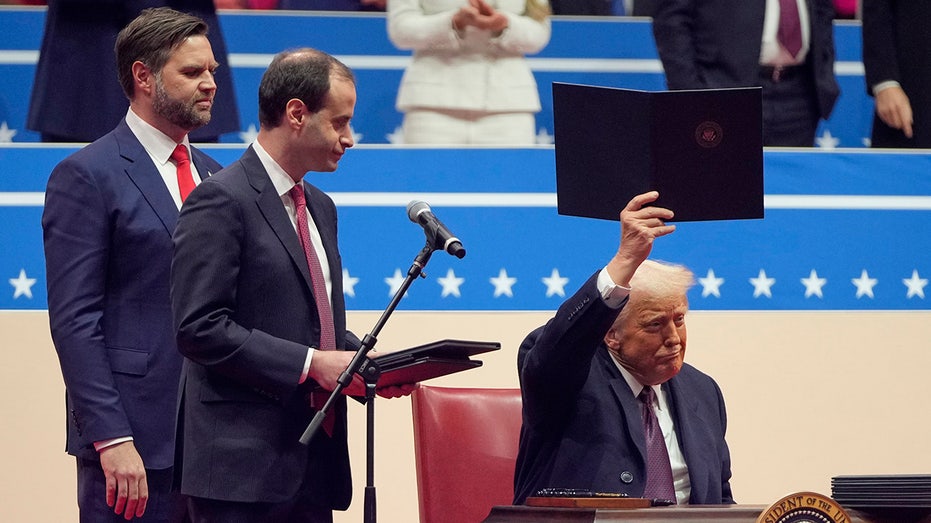
The Trump administration asked the Supreme Court on Thursday to intervene and allow a narrow version of his executive order banning birthright citizenship to move forward, challenging three nationwide injunctions brought in Maryland, Massachusetts and Washington state. Judges in those states immediately moved to block President Donald Trump’s order banning birthright citizenship, which he signed on his first day in office. All three courts blocked the ruling nationwide – something lawyers for the Trump administration argued in their Supreme Court filing is overly broad. In the court filing Thursday, acting U.S. Solicitor General Sarah Harris said the courts had gone too far, and asked the Supreme Court justices to limit the scope of the rulings to cover only individuals directly impacted by the relevant courts. NINTH CIRCUIT REJECTS TRUMP’S BID TO REINSTATE BIRTHRIGHT CITIZENSHIP ORDER “These cases – which involve challenges to the President’s January 20, 2025 Executive Order concerning birthright citizenship – raise important constitutional questions with major ramifications for securing the border,” Harris wrote. “But at this stage, the government comes to this Court with a ‘modest’ request: while the parties litigate weighty merits questions, the Court should ‘restrict the scope’ of multiple preliminary injunctions that ‘purpor[t] to cover every person in the country,’ limiting those injunctions to parties actually within the courts’ power.” The executive order in question sought to clarify the 14th Amendment, which states, “All persons born or naturalized in the United States, and subject to the jurisdiction thereof, are citizens of the United States and of the State wherein they reside.” TRUMP TO SIGN EXECUTIVE ORDER INSTRUCTING AGENCIES TO HUNT DOWN REGULATIONS THAT VIOLATE CONSTITUTION Instead, the language put forth by the Trump administration, and subsequently blocked, would have clarified that individuals born to illegal immigrant parents, or those who were here legally but on temporary non-immigrant visas, are not citizens by birthright. To date, no court has sided with the Trump administration’s executive order seeking to ban birthright citizenship, though multiple district courts have blocked it from taking effect. The Department of Justice, for its part, has sought to characterize the order as an “integral part of President Trump’s broader effort to repair the United States’ immigration system, and to address the ongoing crisis at the southern border.” The executive order Trump signed was originally slated to come into force Feb. 19, and would have impacted the hundreds of thousands of children born in the U.S. annually. More than 22 U.S. states and immigrants’ rights groups quickly sued the Trump administration to block the ban on birthright citizenship, arguing in court filings that the executive order is both unconstitutional and “unprecedented.” The states have also argued that the 14th Amendment does, in fact, guarantee citizenship to persons born on U.S. soil and naturalized in the U.S. The U.S. is one of roughly 30 countries where birthright citizenship is applied.
Blue state’s LGBT ‘conversion therapy’ ban violates Constitution, ‘very easy case’ for SCOTUS, says expert
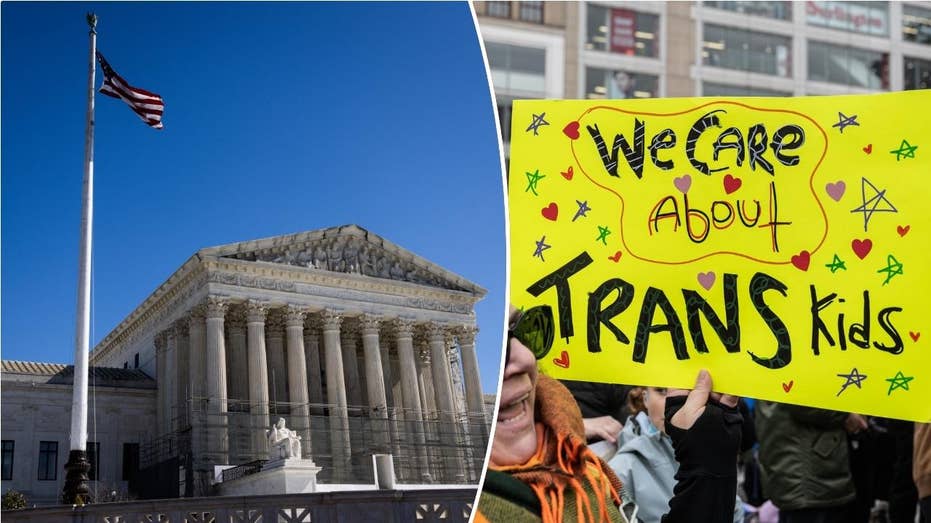
The U.S. Supreme Court this week decided to take up a case challenging a Colorado law banning so-called “conversion therapy” after a licensed Christian therapist, Kaley Chiles, claimed the law violated her First Amendment rights. The case in question, Chiles v. Salazar, comes less than two years after the Supreme Court declined to take up a similar case challenging a law in Washington state that bars licensed therapists from practicing “conversion therapy” on minors. In that case, conservative Justices Clarence Thomas, Samuel Alito and Brett Kavanaugh dissented from the opinion to not take it up, saying they would have granted it review. “A practicing Christian, Chiles believes that people flourish when they live consistently with God’s design, including their biological sex,” the Supreme Court noted in its writ of certiorari accepting the case. “Many of her clients seek her counsel precisely because they believe that their faith and their relationship with God establishes the foundation upon which to understand their identity and desires. But Colorado bans these consensual conversations based on the viewpoints they express.” SOROS-BACKED JUDGE DEFENDS REDUCED SENTENCE FOR REPEAT CHILD MOLESTER AT DEBATE IN STATE SUPREME COURT RACE According to the writ, the question to be considered at oral arguments before the court is, “Whether a law that censors certain conversations between counselors and their clients based on the viewpoints expressed regulates conduct or violates the Free Speech Clause.” Heritage Foundation legal scholar Sarah Parshall Perry said the law is a “very clear First Amendment violation” and that the state legislature has essentially set up a “constitutional challenge based on viewpoint discrimination.” “The state of Colorado has averred that the legislature has determined that the standard of care for these individuals should not be anything other than affirmation of their desires for homosexual orientation or a divergent gender identity, and this herein really lies the rub,” Perry told Fox News Digital in an interview. “and that’s exactly how the petitioner, Kaley Chiles, has presented it here. She said, essentially, in layman’s terms, on the one side, you’re allowing conversations to do nothing but affirm.” The Colorado Attorney General’s Office filed an amicus brief in support of the state’s Minor Conversion Therapy Law, which was enacted in 2019. The legislation specifically prevents mental health professionals from engaging in “conversion therapy” with minors. SCOTUS TURNS DOWN ABORTION CLINIC BUFFER ZONE CHALLENGE, THOMAS SLAMS ‘ABDICATION’ OF DUTY “Conversion therapy,” according to the legislation, is defined as “any practice or treatment by a licensed physician specializing in the practice of psychiatry that attempts or purports to change an individual’s sexual orientation or gender identity, including efforts to change behaviors or gender expressions or to eliminate or reduce sexual or romantic attraction or feelings toward individuals of the same sex.” The law says that “conversion therapy” does not include counseling that helps individuals explore their gender identity, receive social support, or cope with personal challenges, as long as the counseling does not attempt to change a person’s sexual orientation or gender identity. The law also permits assistance for individuals undergoing gender transition, as long as the counseling is not focused on altering their sexual orientation or gender identity. “In Colorado, we are committed to protecting professional standards of care so that no one suffers unscientific and harmful so-called gay conversion therapy. Colorado’s judgment on this is the humane, smart, and appropriate policy and we’re committed to defending it,” Colorado Attorney General Phil Weiser said in a statement about the case. ANTI-TRUMP MEASURE IGNORES ‘RISING CRIME’ AND ‘COST OF LIVING,’ BLUE STATE GOP OFFICIALS CHARGE While this is one of several recent cases SCOTUS has accepted to hear that deals with gender ideology issues – a culture war issue President Donald Trump has weighed in on through several executive actions since taking office – it also bucked several high-profile petitions last week, including Maryland’s ban on semi-automatic firearms and Rhode Island’s ban of high-capacity magazines. “It’s not in any way emblematic of the fact that there is a conservative in the White House, simply because these justices, three of them, have been appointed by this particular POTUS, I don’t think has any bearing one way or the other, and they have been very strong on the First Amendment,” Perry said. “This, to my mind, should be a very easy case.”
